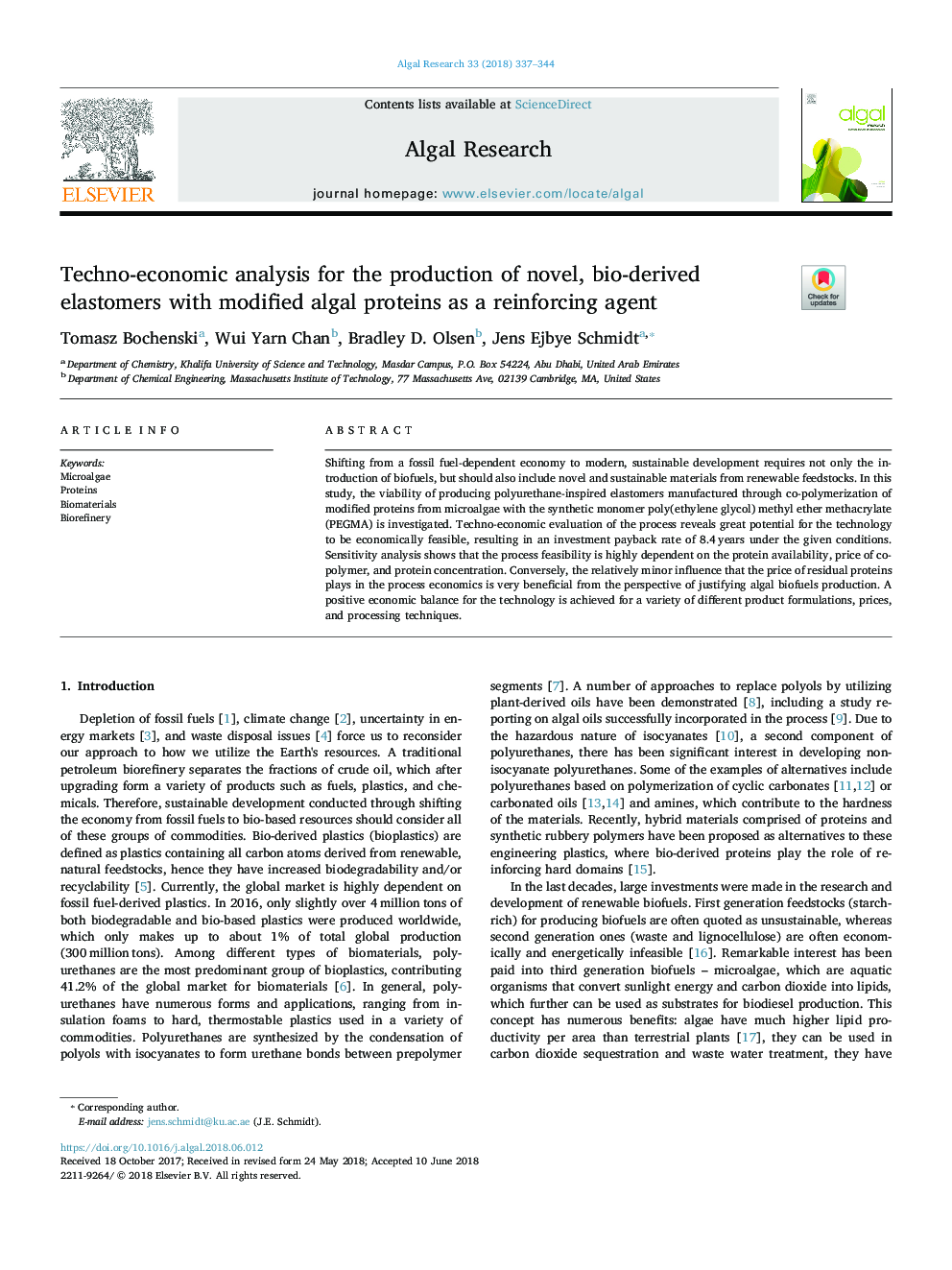| Article ID | Journal | Published Year | Pages | File Type |
|---|---|---|---|---|
| 8085879 | Algal Research | 2018 | 8 Pages |
Abstract
Shifting from a fossil fuel-dependent economy to modern, sustainable development requires not only the introduction of biofuels, but should also include novel and sustainable materials from renewable feedstocks. In this study, the viability of producing polyurethane-inspired elastomers manufactured through co-polymerization of modified proteins from microalgae with the synthetic monomer poly(ethylene glycol) methyl ether methacrylate (PEGMA) is investigated. Techno-economic evaluation of the process reveals great potential for the technology to be economically feasible, resulting in an investment payback rate of 8.4â¯years under the given conditions. Sensitivity analysis shows that the process feasibility is highly dependent on the protein availability, price of co-polymer, and protein concentration. Conversely, the relatively minor influence that the price of residual proteins plays in the process economics is very beneficial from the perspective of justifying algal biofuels production. A positive economic balance for the technology is achieved for a variety of different product formulations, prices, and processing techniques.
Related Topics
Physical Sciences and Engineering
Energy
Renewable Energy, Sustainability and the Environment
Authors
Tomasz Bochenski, Wui Yarn Chan, Bradley D. Olsen, Jens Ejbye Schmidt,
